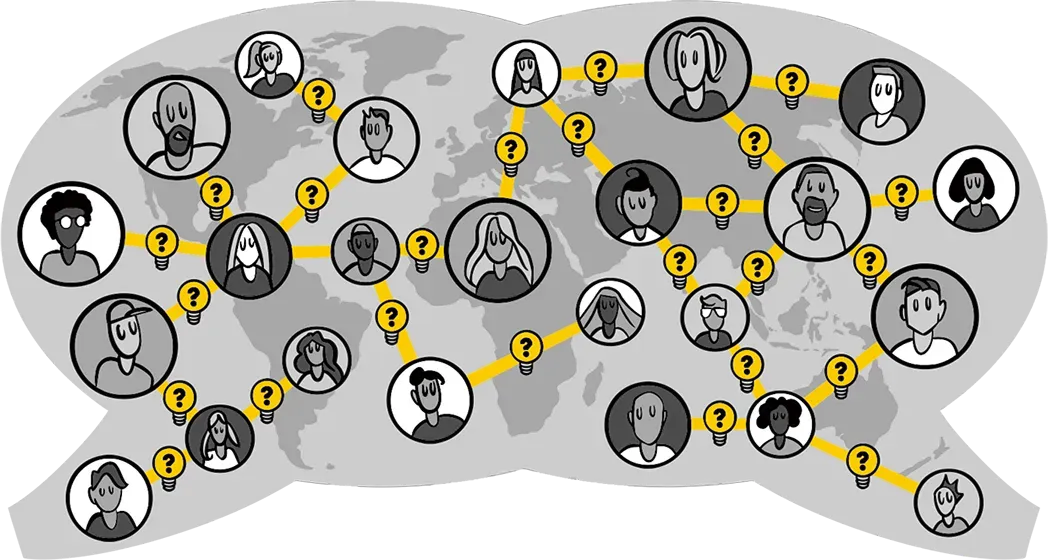Develop Your SE Skills Effectively
Enhance Active Listening, Critical Thinking, and Productive Dialogue

How Street Epistemology Helps Explore Core Concepts
Street Epistemology (SE) provides powerful tools to engage with and critically analyze core concepts such as epistemology, belief systems, reasoning, and truth. SE encourages individuals to examine their assumptions, evaluate cognitive biases, and explore foundational beliefs from an epistemological perspective. By fostering critical reflection, SE allows for a deeper understanding of how we form and justify beliefs, making it an essential tool for anyone seeking to explore philosophical ideas, moral reasoning, and the nature of truth.
Through SE, practitioners explore the limits of certainty, question assumptions about knowledge, and refine reasoning processes. This helps individuals assess the reliability of their beliefs, challenge dogmatic thinking, and engage in thoughtful conversations about complex topics, from philosophy to personal beliefs.
Find the Best Fit for You
You've landed on a page about Street Epistemology, a way of helping people reflect on the quality of their reasoning through civil conversation. Take our free self-paced course called Navigating Beliefs or learn more about the organization behind these world changing projects.

Street Epistemology
International
The organization behind the development of the Navigating Beliefs course, supporting Street Epistemology's practice and offering resources for critical thinking and civil conversation.
Explore SE tools for understanding belief systems, reasoning frameworks, and epistemology.

Applying Street Epistemology to Epistemology and Reasoning
SE provides a structured approach to analyzing belief systems and exploring the foundational concepts of epistemology. Whether you're analyzing moral reasoning frameworks, questioning assumptions about truth, or exploring the role of cognitive dissonance in belief change, SE offers valuable techniques for gaining clarity on these complex topics.
By examining personal belief systems through the lens of epistemology, SE practitioners can explore what it means to "know" something and how we justify our beliefs. These techniques allow individuals to refine their reasoning, develop a deeper understanding of the nature of truth, and critically evaluate the validity of belief systems.
Exercises for Exploring Epistemological Principles and Truth Claims
SE offers exercises that encourage individuals to explore epistemological principles, critically examine the role of evidence, and assess truth claims. These exercises help refine reasoning frameworks, analyze moral reasoning, and evaluate philosophical arguments. Through these reflective activities, practitioners can develop stronger critical thinking skills and gain deeper insights into their beliefs and the world around them.
SE also emphasizes the importance of questioning foundational beliefs, examining personal assumptions, and exploring conflicting worldviews. These exercises encourage self-reflection and intellectual humility, making them essential for anyone committed to deepening their understanding of complex concepts like justification, evidence, and the nature of knowledge.

Free Learning Course for Exploring Epistemology and Belief Systems
Ready to deepen your understanding of epistemology? The Navigating Beliefs course offers Street Epistemology tools for exploring belief systems, analyzing truth claims, and refining reasoning processes.
GO TO COURSE ➔



